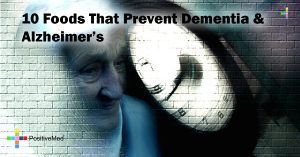
7 Signs Your Gut Bacteria Needs Your Immediate Attention
[nextpage title=”…”]
For years, biologists have suspected a profound link between our health and the microbiomes of bacteria that thrive all throughout our bodies. Understandably, bacteria have garnered a bad reputation since the inception of germ theory. However, a distinct category of bacteria—called probiotics—is proven to be essential to health in a surprisingly wide variety of ways. Bacteria residing inside of our digestive tracts, in particular, is overwhelmingly crucial not only to proper digestion, but to absorption of necessary nutrients. Intestinal bacteria is so vital to our daily functioning, in fact, that an imbalance can quickly manifest itself in a plethora of symptoms.

Taking notice of these symptoms and treating the imbalance accordingly is as simple as listening to your gut. Below are seven indications that your bacterial balance may need some adjustment.
Intestinal Issues
Gastrointestinal problems are most intuitively associated with bacterial imbalance. You may observe bloating, diarrhea, constipation, heartburn, and irregular bowel movements. In this case, it is possible that an overgrowth of bacteria in the small intestine is disrupting the digestive process. Professionals largely recommend a higher intake of probiotics, most usually obtained through supplements. Clinical research has implied that the ingestion of more good bacteria counteracts the negative symptoms produced by an overgrowth.
Vitamin Deficiency
Vitamin deficiency is another key sign of an imbalanced gut. Bacteria is heavily involved with the digestive absorption of many important vitamins, and a deficit of those bacteria can make it difficult for the body to make use of ingested nutrients. Incorporating regular amounts of probiotic-packed foods can boost your efficiency in processing magnesium, as well as vitamins K, D, and B12.
Stress
Unbeknownst to many, stress has a very real, very physical impact on our bodies. Excessive amounts of stress weaken our immune systems, leaving us susceptible to transmittable diseases—and the hormone triggered by stress, cortisol, is known to cause upsets in microbial balance. Reducing stress, whether through exercise, meditation, or professional counseling, can replenish that balance and overall improve our quality of health.
Antibiotic Usage
Antibiotics exhibit little discrimination as to what sort of bacteria they eliminate. While they are a life-saving innovation for humankind, incorrect usages of antibiotics can wreak excessive havoc on digestive bacteria. It is important to use these medications only as prescribed, and many researchers hypothesize that probiotics caught in the crossfire must be purposefully replaced, through a bacteria-heavy diet or supplements.
[/nextpage] [nextpage title=”…”]
Mental Illness
Modern research has struggled to pin down definitive causes behind pervasive mental illnesses, such as anxiety and OCD. Now, many researchers turn to bacteria for a possible component, having found that digestive probiotics play a hand in producing neurotransmitters. These transmitters are chemicals that greatly impact regulation in the brain. Suffers of depression, anxiety, OCD, and even autism may benefit from diets high in fermented foods, like cheese, yogurt, and sauerkraut.
RELATED ARTICLE: Leaky Gut Syndrome: What It Looks Like and What To Do About It
Skin Problems
Surprisingly, skin conditions could very well be indicative of problems in the gut. Excessive acne, eczema, psoriasis, and rosacea have been connected to unhealthy bacterial environments. This occurrence is in part due to the intake of toxins, which target healthful bacteria while encouraging the growth of less beneficial strains. Developing dietary habits that avoid sugars, unhealthy oils, and excessive grains is best for reducing the amount of toxins entering the body.
Autoimmune Diseases
Recent studies have shown, also, a connection between autoimmune diseases and unhealthy digestive tracts. Bad bacteria is capable of triggering inflammation, and a surplus of that bad bacteria may lead to conditions such as rheumatoid arthritis and inflammatory bowel disease. A combination of stress control and altered diet can promote balance and potentially alleviate symptoms associated with unwarranted inflammation.
In the near future, medical professionals predict that an assessment of probiotic health will become as commonplace as blood tests and urinary exams. Research continues to suggest that our intestinal bacteria are uncompromisingly essential to health in every corner of our bodies.
[/nextpage]





